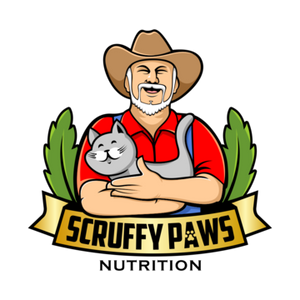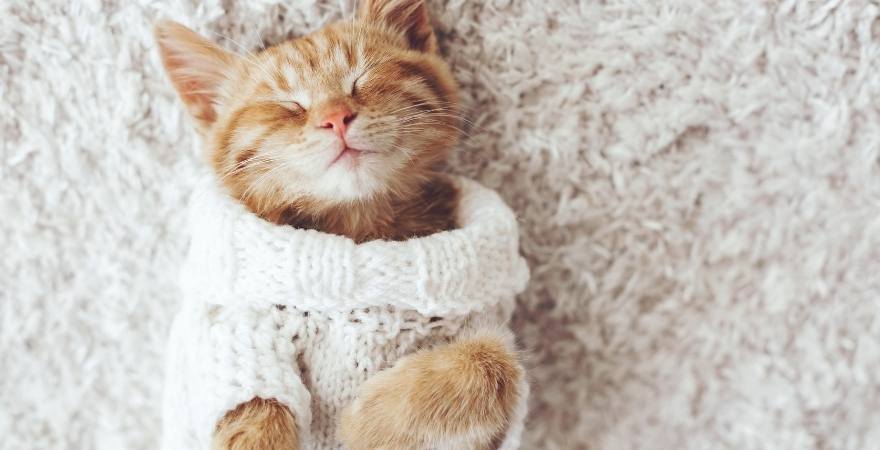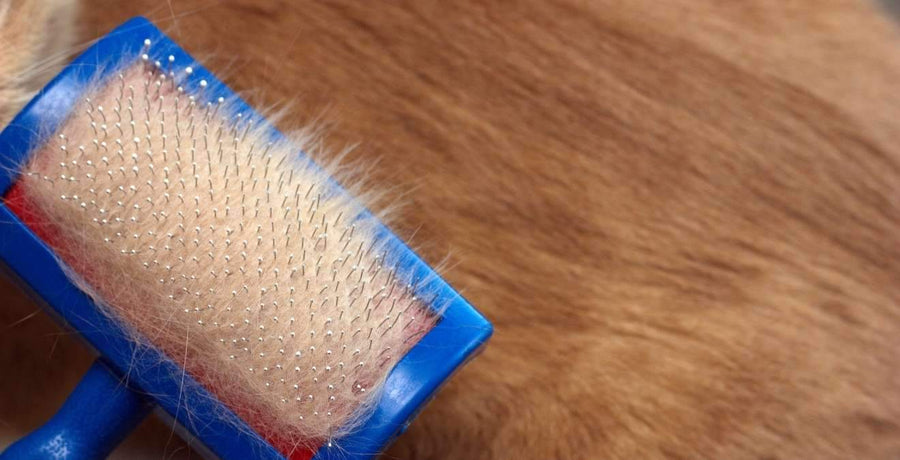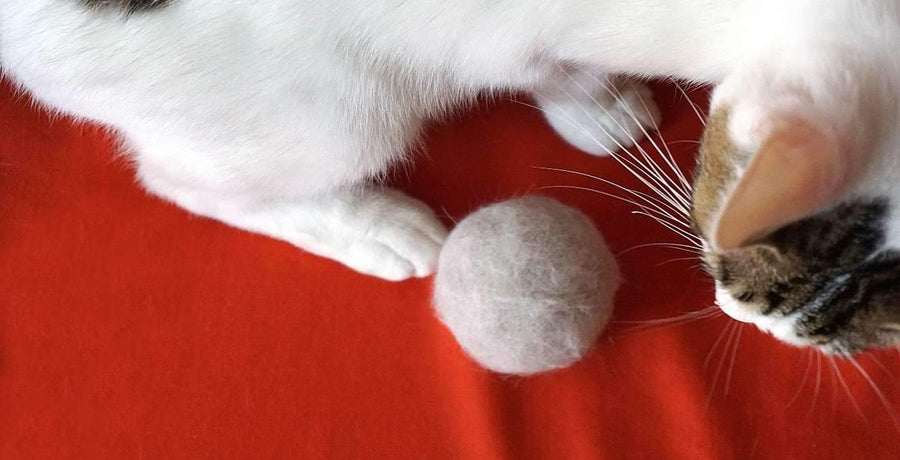Most cats get hairballs and, commonly, they aren’t a major issue. However, it can be unpleasant for the cat as they bring them up. Not to mention the noise they make can be quite off-putting for us humans! Is it just me, or do they have a real knack for doing it while we’re eating our dinner?
The cat owners should aim to prevent hairball formation in cats, whenever they can. This is important as, while rare, hairballs can cause life threatening digestive tract obstructions¹(Oesophageal Obstruction Study).
If your cat vomits hairballs frequently or has other symptoms, a vet visit is sensible. Concerning signs would include:
- Weight loss
- Vomiting or regurgitation of food
- Fast or noisy breathing
- Reduced appetite
- Lethargy
- Chronic cough
- Constipation
In these cases, it is likely that there is more going on than just hairballs.
For healthy cats who bring up the odd fur-ball, lots can be done from the comfort of your own home. Remember, some breeds are more prone to fur-balls than others.
Here’s how to keep those pesky fur balls to a minimum:
-
Hydration
When a cat is poorly hydrated, their digestive tract becomes sluggish and there is an increased risk of an obstruction from a hairball. We should help our kittens out by offering plenty of fresh water. Cats prefer to drink from full bowls. If possible, offer freshly caught rain-water as some dislike the chemical taste of tap water. We can also feed wet cat food and add a few tablespoons of water to each meal. For the fussy cats out there, feline water fountains, as running water may encourage them to drink more.
(NB Feeding wet cat's food or watered down kibble can predispose your little Tiger to dental disease so do try to clean their teeth daily.
-
Fiber
Fiber is essential for a healthy gut. Not only will providing enough fiber ensure the gut moves along nicely, the indigestible hair is pushed into the colon and out of the digestive tract. This way, the cat does not have to vomit up the swallowed hair.
Most commercial diets contain adequate amounts of fiber but it can help to add more fiber in the form of canned food, e.g. some canned pumpkin. This is especially true if your cat is prone to digestive system problems, like constipation too.
-
Brushing
Grooming your furry cat regularly is one of THE BEST things you can do when it comes to cat hairballs prevention. In fact, it could even be described as a hairball remedy! This is probably one of the cheapest and best hairball remedies for cats that exists as you simply have to invest in one good quality brush.
Aim to brush your cat every day (or twice daily if they are long-furred). You may need to brush even more frequently during shedding season. Use a quality brushing tool that removes loose and dead hair efficiently. This is a chore you should get your pet used to from kittenhood. After each session, reward them with a tasty treat. Avoid excessive grooming though!
-
Staying active
Alongside with the normalization of cat's diet, it’s important that they are encouraged to keep active. This can mean a combination of time spent outside, laser chasing, ‘find the treat’ games and interactive toys.
-
Cat Food & Supplements
You are what you eat and felines are no exception. Feeding the right cat food can go a long way towards hairball prevention. There are eating routines specifically made like a hairball remedy. They tend to contain both psyllium and insoluble fibers. These ingredients allow for the smooth transit of the swallowed fur along the gut.
Likewise, there are supplements and chews available on the market which work as hairball remedies² (Nutritional Prophylactic Study). Talk to your vet about which product would be most appropriate for your cat health.
-
Beware of ‘over-grooming’
Sometimes, a cat’s grooming will go into overdrive. You may notice they are constantly licking and chewing their skin and are bringing up a lot more hairballs than usual. This type of behavior warrants a vet visit as it may mean there is an underlying issue such as skin disease from brushing too much.
-
What not to do
You may find some articles online advising you to feed your cat various natural oils (vegetable oils, olive oil, etc.) and even butter. This isn’t usually advised by vets as it can cause an upset stomach.
While hairballs are usually just a normal part of kitty lifestyle, we don’t have to put up with them. Preventing hairballs in cats can improve their quality of life. On top of that, let’s face it, no owner enjoys cleaning them up like a cat's paw!
Dr. Linda Simon, BVMS, MRCVS
Veterinary surgeon,Dr. Linda Simon MVB MRCVS is a locum veterinary surgeon who has worked in London for the past 8 years. She graduated top of her class in small animal medicine from UCD, Dublin. She is currently a member of the Royal College of Veterinary Surgeons.




